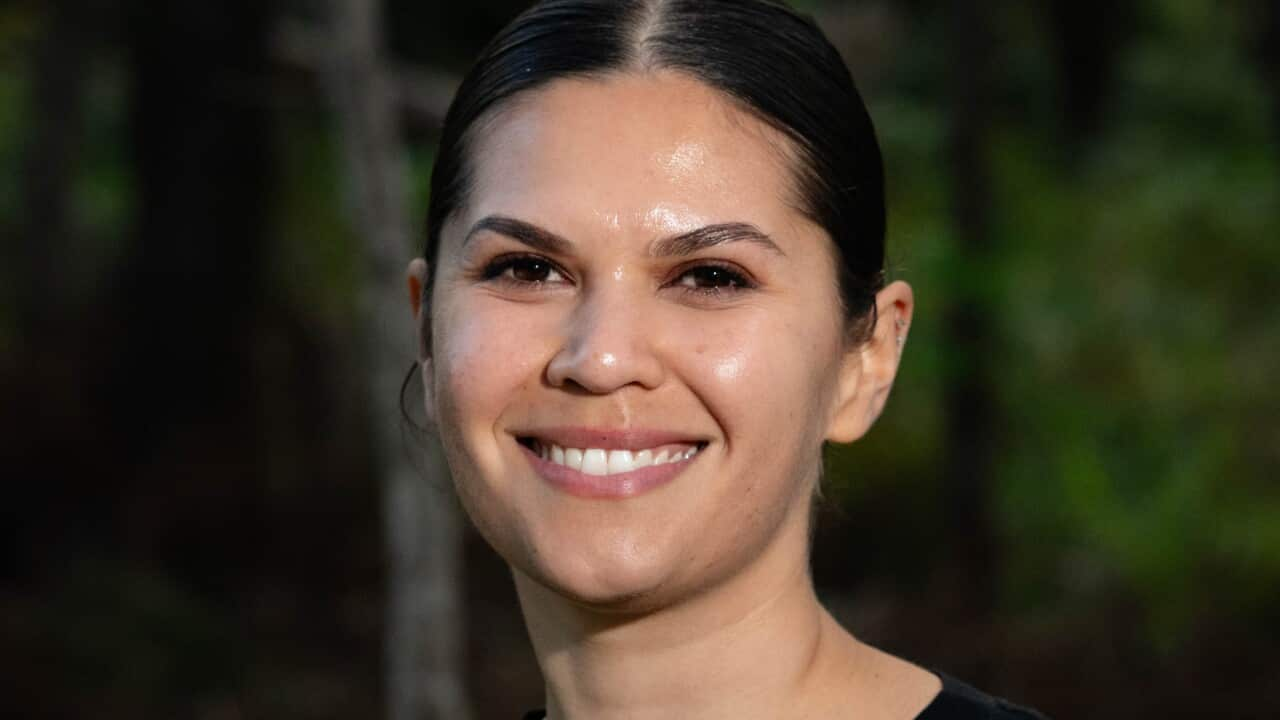Kara Rose was 15 when the footage of George Floyd’s death filled her newsfeed.
Filled with sickness and shock, the young Kamilaroi girl was driven to create , a short film that examines the racial injustice of Floyd’s killing.
For Kara, the process threw the issue's relevance at home into sharp relief.
“I was doing research and saw that it’s been happening in Australia for years, lots of years, to Indigenous people. [But] it hasn’t been talked about like this was,” she said.
“Why all of a sudden is it happening in America and being talked about but it’s not being talked about in Australia?” Frustrated and determined to start the conversation, Ms Rose began working on the film.
Frustrated and determined to start the conversation, Ms Rose began working on the film.

George Floyd's death sparked a worldwide reckoning about race and policing. Source: Getty Images
“I don’t think anyone would have known who David Dungay Jr was then, that he said those exact same words – I can’t breathe. That wasn’t talked about when that happened five years before George Floyd,” she told NITV News.
Entirely filmed on a smartphone, Eight Minutes Forty Six Seconds won Ms Rose Best Female Creative and the inaugural First Nations Award at the seventh annual Smartfone Flick Fest (SF3).
The film is named and timed to reflect the length of time former US Police officer Derek Chauvin held his knee on George Floyd’s neck on Mary 25, 2020.
“That amount of time, eight minutes and forty-six seconds, that is how long that police officer had his knee on George Floyd’s neck. I feel like that time has a lot of symbolism in what’s gone on,” Ms Rose said.
“I felt like putting the whole story into that amount of time to make it have a greater impact.”
The film which walks through American and Australian history, from 1960s racial segregation policies to the death in custody of John Pat in Roebourne in 1983 and more.
It referenced speeches from influencial leaders like Malcolm X and Angela Davis, Charles Perkins, Adam Goodes, Faith Bandler, Leetona Dungay and Senator Pat Dodson.
Ms Rose even included a nod to her own brother, Jai, who is studying law in an attempt to turn the tide.
“When it came to taking about my brother, I felt it was so important to put that part in there. There aren’t that many Indigenous lawyers to help in the justice system. I feel like more people need to know that, I hope it encourages them also to be a lawyer and help Indigenous people like them,” she said.
Ending the film, Ms Rose installed a rolling list of some of the names of Aboriginal people who have died in custody since the 1991 Royal Commission.
“For me, seeing how many names there were it was so shocking. There are so many, and they haven’t been talked about. Their deaths haven’t been justified, they haven’t gotten their justice,” she said.
“Putting their names there it shows we haven’t forgotten about them and what they went through.” With the film out in the world, and an award to its name, Ms Rose hopes it can reach the screens of those who don’t know.
With the film out in the world, and an award to its name, Ms Rose hopes it can reach the screens of those who don’t know.

Kara Rose accepting her award at SF3. Source: Supplied
“I really want people to have a different perspective, I really want it to impact them and change their thoughts. All of this stuff, I’m sure most Australians don’t know anything about it. They’ve heard something but they don’t really know what lies behind it,” she said.
“By other people seeing this, they might want to take action or also make an impact or try to stop what is happening. If it impacts them to be part of the marches then I’m really glad.”
With aspirations for a career in filmmaking, Eight Minutes Forty Six Seconds is just the start for Ms Rose.
“I feel very proud, I feel like I’ve finally gotten my thoughts out about this topic. It’s been on my mind for a very long time,” she said.
“I really want to continue as a filmmaker, making stories about Indigenous lives – what really happens. I want to make more films that impact people, I want to get my thoughts out there when I have opinions that people don’t have I feel like I can change people’s minds about things,” she said.











